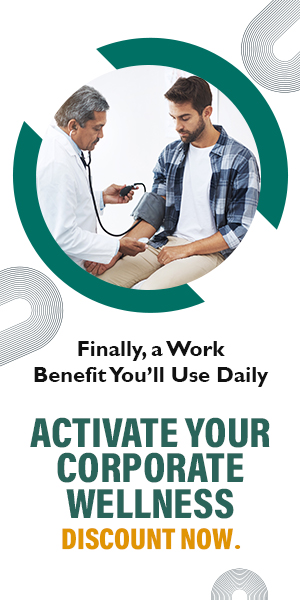Movement
Recovery 101: What To Do Post Workout
If muscle soreness has left you unable to move after a high-intensity workout, bounce back with these recovery tips from a celebrity fitness coach.

You are training hard at the gym and have just finished a gruelling workout session. Every inch of your body muscles is screaming. You are sweating profusely and probably trying to catch a breath. What you do next will heavily impact how well you recover post exercise.
According to a 2021 study published in the Journal of Physics: Conference Series, delayed onset muscle soreness (DOMS) also known as ‘muscle fever’ occurs due to tiny splits or tears in the muscles caused by exerted stress during exercising. These micro tears help muscles become stronger. DOMS begins 24 to 48 hours after a workout. The intensity of the pain depends on the type of workout you have done which ultimately determines the degree of muscle damage.
Related story: Going Slow Will Help You Lose Weight
So, what can be done to prevent DOMS? Prioritising proper recovery after exercise is just as important as the workout itself. Unfortunately, many people tend to ignore it or choose to do it when they have time. Your body needs constant care to operate. Taking steps to optimise quick post-workout recovery is essential to reduce the risk of injuries and boost bodily functions to keep you energised and ready to tackle upcoming training.
Related story: 7 Moves To Relieve Stiffness
We got in touch with Mumbai-based celebrity trainer, Vinod Channa to suggest the best way to recover after exercise. He says, “Fuel your body for exercise and recovery with proteins, carbs, fats and other components as diet changes as per the intensity of the workout and how progressive it is.” You don’t have to go through this pain every time you push your limits while working out. Prepare your body for the next workout with this expert-backed advice to recover faster post-workout.
Related story: Easy Guide To Injury-Free Yoga
Eat right to recover fast
There is no better way to recover from a workout than loading up on a healthy diet. “If you don’t nourish your body adequately for exercise, it uses existing muscles to recover from the workout. This puts your body in a catabolic state (where you lose both fat and muscle). It can result in unexplained weight loss, increased fatigue, low exercise tolerance and insomnia,” says Channa. He has suggested that post workout, consuming a nutrition-packed diet helps to get faster results, progress and prevent injuries.
(a) Macronutrients - Macronutrients (carbohydrates, protein and fats) are vital post workout throughout the day as these are nutritive components used to generate energy and maintain body functions effectively.
- Carbohydrates feed muscles during intense workout. Body breaks down carbs into glucose which is carried into cells through the bloodstream to operate body systems. To gain glycogen quickly, eat 1.2 kg of carbs per body weight every hour, says a research published in Journal of the International Society Of Sports Nutrition in 2017. Complex carbohydrate needs will vary from 5 to 7 grams per kilogram of body weight per day with training ranging from one hour per day to five hours or more. A post workout meal for an average 60 kg person can be 100 - 150gm of carbohydrates for glycogen recovery depending upon the type of diet he/she is consuming like keto, low-carb paleo or Atkins diet. Including foods such as noodles, pasta, rice, bread, cereal, oranges, mangoes, berries, bananas, apples, and melons, milk, yoghurt, legumes, and peas will help speed up recovery after a workout.
- Proteins are crucial for repair and growth of body tissues which get affected during exercising. According to a 2020 study issued in Frontiers in Nutrition, for every kilogram of body weight, adults need 0.8 gram to 1.2 gram of protein every day. This means if you weigh 63 kg, then you would need 50 grams of protein daily. Acknowledging this fact, Vinod Channa advises to include protein-rich food such as meat, fish, nuts, eggs, tofu and lentil to repair muscle damage and build muscles as well.
- Fats provide energy to the body by absorbing essential vitamins to boost hormones and cell development. Dietary guidelines of the World Health Organisation recommends to consume a fat total of 20-30 percent of overall calories. Health experts recommend unsaturated fats as they efficiently control cholesterol level and stabilise the heart. These good fats are predominantly found in avocados, peanut oil, olive oil, hazelnuts, almonds, pumpkin seeds, sesame seeds and fish oil.
(b) Micronutrients - Micronutrients are dietary elements such as minerals and Vitamins required for the body in minimum quantity. People also require Vitamins (water-soluble and fat-soluble) and antioxidants in their body in certain amounts to recover quickly after workout.
- According to a pilot study and a randomised controlled trial published in Frontiers in Nutrition, 2021, minerals such as iron, potassium, sodium, magnesium, calcium, phosphorus and zinc promote muscle recovery after an intense workout. Foods containing minerals are avocado, banana, lentils, beans, coconut water, salt, milk, tofu, paneer, cashews, dairy products, salmon, oysters, fortified cereals, brown rice, chickpeas, mussels, spinach, potatoes, sesame seeds, and beef liver.
- Vitamin A, E and D (fat-soluble ) helps in strengthening muscle fibres, provides structure and bone development. Vitamin B-complex and C (water-soluble ) is an essential component in repairing muscle-tears and damages. Foods such as kiwi, broccoli, green leafy veggies, mangoes, papaya, bell peppers (red & yellow) and citrus fruits are rich in vitamins which should be consumed throughout the day for faster muscle recovery.
Related story: A Home Cardio Workout For Your Knees
Rest to rejuvenate
After an intense workout session, don’t you feel like crashing on the couch? You do, right! And, that’s the right thing to do. Vinod Channa explains, “after a heavy workout or back-to-back exercises, your body needs to slow down. In other words, resting is mandatory as soreness of muscles requires 24-48 hours to heal. So, resting for 48 hours gives enough time to replenish lost energy and fatigue. During this time, eat a nutritious diet coupled with a good sleep as per the intensity of the exercise to recover from the muscle soreness.”
Related story: 5 Tips To Get Fit Quickly
Hydrate with water and electrolytes
During the workout, water and minerals get burnt as muscle contracts. This process can leave you feeling dehydrated. Drinking water post-workout can help soothe and rehydrate muscles for the short term as only drinking water is not enough. However, you can replenish your lost fluid level to speed up muscle tear recovery, by including electrolytes in your diet. Electrolytes are nutrition (potassium, calcium, sodium, iron, and magnesium.) in the form of liquid/fluid that you can get through mineral-rich foods like lentils, spinach, apricots and sunflower seeds.
- Include coconut water as it is rich in antioxidants, potassium and magnesium which is a great alternative for rehydration post workout.
- Have lemon water and green/herbal tea in the morning to recover from muscle aches. Herbal tea and lemon have antioxidants in high amounts that help to relieve pain after exercise.
- Tart cherry juice is effective in reducing stressed and sore muscles as it is rich in antioxidants, according to a 2014 study published in Journal of The International Society of Sports Nutrition.
Related story: 7 Ways To Boost Post-Workout Muscle Recovery
Massage to re-energise
It's not a bad idea to get some massage therapy after an intense, exhausting week. In a 2018 systematic review published in Frontiers in Physiology, it was found that massage was more effective in reducing post workout fatigue and helps to recover faster. Incorporating massage and other relaxing therapies like aromatherapy or lomi-lomi therapy (deep-tissue massage) can bring positive outcomes in muscle soreness as massage regulates blood circulation and increases flexibility.
What to keep in mind during recovery period
While you are doing everything you can do to minimise muscle ache, there are some aspects you should consider to make your recovery path fruitful.
(a) Avoid any kind of energy-intensive exercises, such as weightlifting, jumping, or running as it may cause injuries. Being mindful during the resting phase will help you in getting back on track faster.
(b) A 2014 study published in PLoS One says that alcohol consumption can increase the inability to refill the lost glycogen, which is essential in providing energy and repairing muscle stiffness post-endurance workout.
(c) Some people might have health issues such as high/low blood pressure, Vinod Channa suggests checking blood pressure before and after a workout. In case of back pain or bone issues, talk to your trainer regarding the correct workout for you. For other health issues, he advises you to consult your nutritionists to guide you on the right diet plan as per your body's requirements to help in your recovery phase.
Related story: The World’s Greatest Stretch
This article includes additional inputs from Dr. Lakshmi Kilaru PhD in Food Science and Nutrition (University of Georgia), Head Holistic Nutritionist at Urlife, Hyderabad.
EXPLORE MORE
Instead of chasing long workouts, micro-movement shifts the focus from “Did I work out today?” to “Did I move often enough today?”
Pressed for time but craving results? These high-impact exercises burn maximum calories in minimum time, when done right.
Simple, practical fitness advice to help you feel stronger, healthier, and more consistent in 2026.
Callisthenics isn’t about flashy Instagram moves or avoiding the gym. According to celebrity fitness and lifestyle coach Krishna Sadvale, it’s one of the most practical ways to build strength, control, and confidence in your own body.






.jpg)

.jpg)
.jpg)
